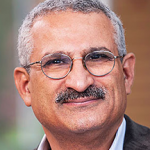This paper is an empirical investigation of inequality of education opportunities in the Middle East and North Africa (MENA). We use student scores from tests administered by the international consortium Trends in Mathematics and Science Study (TIMSS) for a number of MENA countries and over time since 1999 to estimate the effect of circumstances children are born into on their academic achievement in science and mathematics. From the variation in inequality of education opportunities across countries and over time we draw lessons on the influence of different education systems or changes in policy on equality of opportunity. We find that inequality of opportunities explains a significant part of the inequality in educational achievements in most MENA countries, but in a few cases, notably Algeria, its role is small. Family background variables are the most important determinants of inequality in achievement, followed by community characteristics. Inequality of education opportunities are high in several MENA countries, and have either stayed the same or worsened in recent years. The results show that, despite great efforts in past decades to invest in free public education, most MENA countries are less opportunity equal in educational achievement that European countries, and several are less equal than Latin American countries and the United States. There is plenty of room for policy to further level the playing field in education. We discuss how our results shed light on policy choices in education that can contribute to greater equality of education and income in the region.
ملخص
تقدم هذه الورقة تحقيق تجريبي لعدم المساواة في فرص التعليم في منطقة الشرق الأوسط وشمال أفريقيا (MENA). نستخدم النتائج الخاصة بالطلاب من الاختبارات التي يديرها الكونسورتيوم الدولي للاتجاهات في الرياضيات ودراسة العلوم (TIMSS) لعدد من بلدان المنطقة وعلى مر الزمن منذ عام 1999 لتقدير تأثير الظروف التى يولد فيها الأطفال على تحصيلهم الدراسي في العلوم والرياضيات. نستخلص من التباين في عدم المساواة في فرص التعليم في مختلف البلدان وعلى مر الزمن بعض الدروس حول تأثير أنظمة التعليم المختلفة أو التغييرات في السياسة العامة بشأن المساواة في الفرص. نجد أن عدم المساواة في الفرص يفسر جزءا كبيرا من التفاوت في التحصيل العلمي في معظم بلدان المنطقة، ولكن في حالات قليلة، ولا سيما الجزائر، يكون دورها صغير. متغيرات الخلفية العائلية هي أهم العوامل المحددة لعدم المساواة في التحصيل، تليها خصائص المجتمع. عدم المساواة في فرص التعليم مرتفعة في العديد من بلدان المنطقة، وظلت على حالها أو ساءت في السنوات الأخيرة. وتظهر النتائج أنه على الرغم من الجهود الكبيرة في العقود الماضية للاستثمار في التعليم العام المجاني، فان معظم بلدان هذه المنطقة لها أقل تكافؤ للفرص في التحصيل العلمي عن الدول الأوروبية، وعدد من هم أقل مساواة من دول أمريكا اللاتينية والولايات المتحدة. هناك متسع كبير فى السياسات للحصول على المزيد في مجال التعليم. نقوم بمناقشة دور النتائج التى تحصلنا عليها فى تسليط الضوء على خيارات السياسة العامة في مجال التعليم وكيف يمكن أن تسهم في تحقيق المزيد من المساواة في التعليم والدخل في المنطقة.

Research Fellows
Djavad Salehi-Isfahani
Professor, Virginia Tech University

Research Fellows
Ragui Assaad
Professor and Freeman Chair for International Economic...



